Mobile:+86-311-808-126-83
Email:info@ydcastings.com
English
Durable & Efficient Impellers for Pumps & Water Pumps
The Foundational Role of Casting Impellers in Industrial Fluid Dynamics
In the vast and complex world of industrial machinery, the impeller serves as an indispensable component, particularly within pumps and compressors, acting as the primary driver for converting rotational energy into the kinetic energy of fluids. A Casting Impeller, meticulously manufactured through precise casting processes, is engineered to facilitate the efficient movement or compression of liquids and gases across an extensive array of applications. Its design, material composition, and manufacturing precision are critical determinants of a pump system's overall performance, energy efficiency, and operational longevity. Whether handling corrosive chemicals in petrochemical facilities, managing vast volumes of water in municipal treatment plants, or circulating slurries in mining operations, the reliability and integrity of this critical rotating element are paramount. This comprehensive article aims to provide B2B decision-makers and technical professionals with an in-depth understanding of Casting Impellers, delving into their intricate manufacturing processes, key technical parameters, diverse application scenarios, and the significant advantages they offer in demanding industrial environments. We will leverage industry data and expert insights to underscore the inherent value and indispensable nature of high-quality pump components.
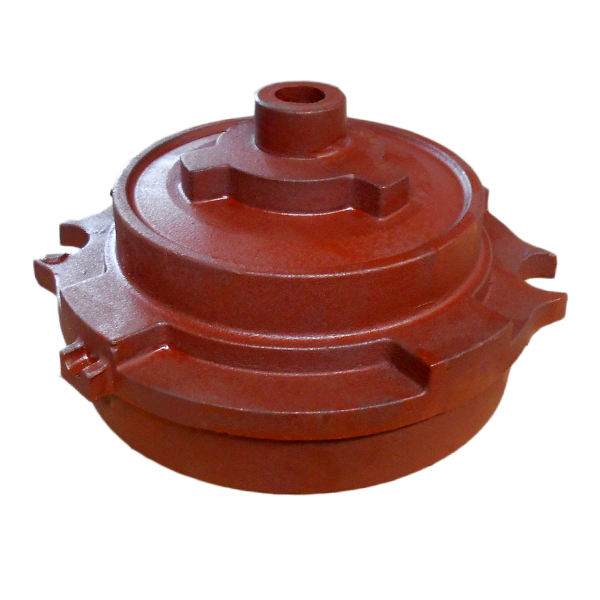
The selection of the appropriate impeller type is a multifaceted decision, directly influencing flow rate, discharge head, and the hydraulic efficiency of the fluid transfer system. Factors such as the fluid's viscosity, temperature, specific gravity, and the presence of suspended solids profoundly dictate the material and design specifications required. For instance, in severe abrasive slurry applications, materials like high-chrome white iron or specialized elastomers are favored for their superior wear resistance, while highly corrosive environments necessitate alloys such as stainless steel, duplex, or super-duplex stainless steel. The manufacturing precision, often combining advanced casting techniques with subsequent sophisticated CNC machining, ensures that the component's hydraulic profile is meticulously optimized to achieve maximum efficiency and minimize cavitation. This rigorous approach not only extends the service life of the impeller on pump systems but also significantly reduces maintenance overheads and operational downtime. Understanding these fundamental considerations is vital for making informed procurement decisions that positively impact long-term operational costs and system reliability across various critical industrial sectors.
Deciphering the Advanced Manufacturing Process of Casting Impellers
The production of a high-performance Casting Impeller is a testament to precision engineering, involving a meticulously controlled, multi-stage manufacturing process that prioritizes material integrity, dimensional accuracy, and adherence to rigorous quality standards. The process typically commences with the judicious selection of materials, which range from robust cast iron (including grey and ductile variants) and various stainless steels (such as 304, 316, Duplex, and Super Duplex) to specialized bronze and nickel alloys. This choice is critically dependent on the application's specific demands for resistance to corrosion, abrasion, extreme temperatures, or high pressures. Once the optimal material is determined, the core manufacturing stage frequently employs investment casting (the lost wax method) for its ability to produce highly intricate designs with superior surface finishes, sand casting for larger components, or occasionally vacuum casting for reactive metals. Each method is chosen for its specific strengths in forming complex geometries with exceptional accuracy, thereby minimizing casting defects and ensuring the structural integrity of the final product. The precise creation of the mold is paramount, accurately reflecting the vanes, hub, and shroud designs of the impeller, which are specifically engineered for optimal hydraulic performance and crucial for maintaining efficiency within the pump casing.
Subsequent to the casting process, significant post-casting operations are indispensable for refining the mechanical properties and achieving the exact dimensional tolerances of the component. This often includes carefully controlled heat treatments designed to achieve desired mechanical properties such as specific hardness levels, tensile strength, and ductility, particularly vital for stainless steel or nickel alloy units destined for aggressive operational environments. Precision CNC machining follows, ensuring exact dimensional conformance, static and dynamic balancing of the impeller, and the machining of critical surfaces like the shaft bore and sealing areas. Quality control measures are systematically integrated throughout every phase, from spectroscopic analysis of raw materials and molten metal to advanced non-destructive testing techniques such as radiographic inspection for internal defects, ultrasonic testing, and dye penetrant inspection for surface flaws. Strict adherence to international standards, including ISO 9001 for quality management, ASTM for material specifications, and ANSI/HI for pump design and testing, is rigorously maintained. This comprehensive quality assurance guarantees that each water pump impeller or industrial pumpe impeller consistently meets or exceeds specified performance expectations, ensuring a long and reliable service life, typically ranging from 5 to 15 years depending on the application and maintenance regimen. The synthesis of advanced manufacturing technologies and stringent quality assurance protocols is what ultimately defines a superior product, making it an exceptionally reliable component in critical infrastructure applications such as petrochemical plants, metallurgical facilities, and municipal water management systems, where energy efficiency and corrosion resistance are non-negotiable.
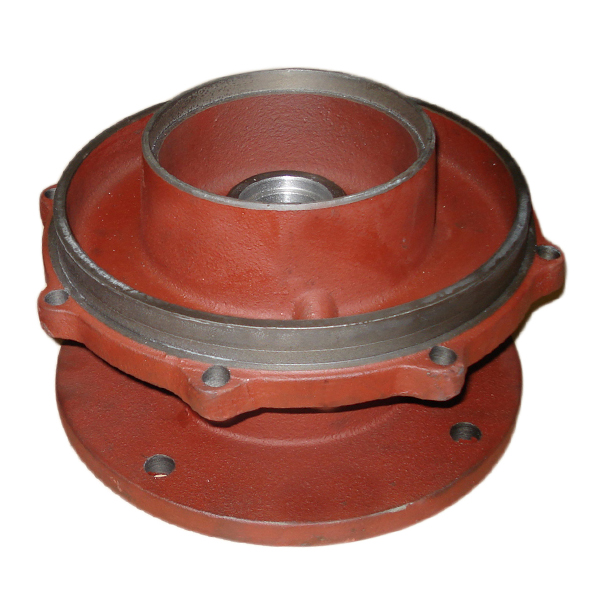
Key Technical Specifications and Performance Metrics for Optimal Impeller Selection
A thorough understanding of the technical specifications of a Casting Impeller is paramount for engineers and procurement specialists to ensure optimal compatibility and performance within complex pump systems. Critical parameters include the component's diameter, vane configuration (open, semi-open, or closed designs), precise material composition, and dynamic balance grade. The diameter directly influences the pump's generated head and flow rate, while the vane type dictates its suitability for handling clean liquids, abrasive slurries, or fluids with significant suspended solids. For example, closed designs, fully encased by shrouds on both sides, typically offer higher hydraulic efficiency for clean liquids due to minimized internal recirculation, whereas open designs are often preferred for highly abrasive or high-solids content fluids, as they reduce the risk of clogging. Material selection is pivotal, with common choices ranging from ASTM A48 Class 30 Grey Iron for general water applications to ASTM A890 Grade 5A (CD3MN/2205 Duplex Stainless Steel) for extremely corrosive or abrasive environments, offering superior strength and extended resistance. Ensuring the appropriate material and design selection is key to extending the operational life of related components like cap ends and minimizing wear across the entire pump assembly.
Performance metrics, such as hydraulic efficiency, Net Positive Suction Head Required (NPSHR), and allowable vibration levels, are crucial for thoroughly evaluating a unit's operational effectiveness. Hydraulic efficiency, which can exceed 85% for well-designed centrifugal variants, quantifies how effectively the energy imparted by the rotating element is converted into fluid motion. A lower NPSHR is highly desirable, indicating a reduced potential for cavitation, a phenomenon that can severely damage the component and the pump casing. Dynamic balancing, typically performed to ISO 1940-1 Grade G6.3 or even G2.5 for high-speed applications, significantly mitigates vibrations, thereby extending the lifespan of bearings and seals and ensuring smoother, more reliable operation of the entire impeller on pump system. The table below provides representative data outlining typical parameters for various types of impellers and their associated materials, illustrating the broad range of capabilities available for diverse industrial applications. This detailed data underscores the critical importance of precise engineering and manufacturing in achieving peak pump performance, a factor that is indispensable for sectors like power generation and chemical processing where reliability is paramount.
| Parameter | Open Impeller (e.g., Slurry Pump) | Semi-Open Impeller (e.g., Wastewater) | Closed Impeller (e.g., Clean Water/Chemical) |
|---|---|---|---|
| Typical Material | High-Chrome White Iron (e.g., A532 Class III), Rubber Lined | Ductile Iron (e.g., ASTM A536), Bronze, 316SS | Cast Iron (e.g., ASTM A48), Bronze, 304SS, Duplex SS |
| Solids Handling Capability | Excellent (Large solids, abrasive slurries) | Good (Moderate solids, fibrous materials) | Limited (Clean liquids, small particles) |
| Typical Efficiency (%) | 50-65% (dependent on solids) | 60-75% | 70-88% (High for clean liquids) |
| Dynamic Balance Standard | ISO 1940-1 Grade G16 or G6.3 | ISO 1940-1 Grade G6.3 | ISO 1940-1 Grade G2.5 or G6.3 |
| Surface Roughness (Ra) | 12.5 - 25 µm (rougher) | 6.3 - 12.5 µm | 1.6 - 6.3 µm (smoother for efficiency) |
| Typical Lifespan | 1-3 years (in severe conditions) | 3-7 years | 5-15+ years |
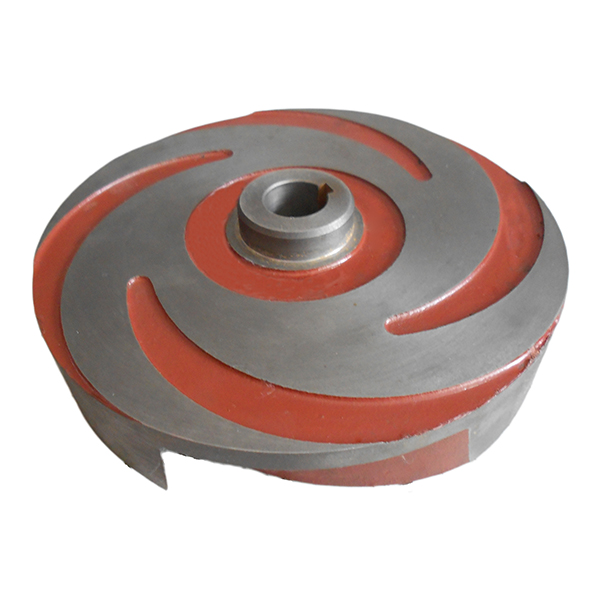
Diverse Applications and Strategic Advantages of Casting Impellers
The inherent versatility and robust construction of Casting Impellers render them indispensable across a broad spectrum of industrial sectors, each presenting unique operational challenges that high-quality components are engineered to master. In the petrochemical industry, for example, rotating elements crafted from highly corrosion-resistant alloys like Hastelloy or Duplex Stainless Steel are absolutely critical for the safe and efficient transfer of volatile chemicals, crude oil, and refined products under often extreme temperatures and pressures. Their ability to resist aggressive chemical attack and erosion ensures operational continuity and significantly minimizes hazardous leaks, thereby enhancing safety and environmental compliance. Similarly, within the metallurgical industry, particularly in mineral processing and ore slurry transport, heavy-duty impellers manufactured from high-chrome white iron or specialized elastomers are specifically designed to withstand severe abrasion from dense, abrasive slurries. This design focus significantly contributes to reduced wear and extended pump life, directly translating into lower maintenance costs and higher throughput in demanding operations while safeguarding the integrity of the critical pump casing from premature failure.
In the municipal water and wastewater treatment sectors, the water pump impeller faces challenges such as varying fluid quality, the presence of suspended solids, and the necessity for continuous, reliable operation. Here, components made from ductile iron or bronze, often featuring non-clog designs, are commonly deployed for their optimal balance of durability and efficiency in handling raw sewage and treated water. Their meticulous hydraulic design ensures optimal flow characteristics and minimal energy consumption, aligning perfectly with modern sustainability objectives. Beyond these core industries, Casting Impellers prove vital in power generation (for cooling water circulation and boiler feed pumps), HVAC systems, food and beverage processing (which demand hygienic stainless steel units), and agricultural irrigation. In each of these diverse scenarios, the specific material selection, sophisticated hydraulic design, and manufacturing precision of the rotating element are precisely tailored to deliver distinct advantages. These include significant energy savings achieved through optimized hydraulic efficiency (potentially reducing power consumption by 10-15% in high-volume applications), superior corrosion resistance leading to considerably longer component lifespan, and reduced operational downtime due to their inherently robust construction and minimal susceptibility to cavitation damage. These real-world applications unequivocally demonstrate the profound positive impact that a well-engineered impeller on pump systems can have on overall operational efficiency and profitability.
Strategic Supplier Selection: Expertise, Customization, and Unwavering Trustworthiness
When engaging in the procurement of Casting Impellers, it is absolutely paramount for B2B clients to evaluate potential suppliers beyond mere unit cost, focusing instead on defining factors of true value: unparalleled expertise, comprehensive customization capabilities, and unwavering trustworthiness. A truly reputable manufacturer distinguishes itself through profound engineering expertise in fluid dynamics and advanced metallurgy, enabling them to recommend optimal materials and specific designs (e.g., precise vane angles, exit widths, or specialized cap ends configurations) tailored to your unique application challenges. This encompasses extensive experience in delivering industrial pumping solutions for a diverse global client base, coupled with a deep understanding of various international standards and complex operational environments. For instance, a vendor with a proven track record of successfully serving clients in demanding sectors like chemical processing and mining will possess the nuanced knowledge required to anticipate potential issues and engineer a solution that performs reliably under duress, offering substantial energy savings and reduced operational costs over its entire service life.
Customization represents another critical consideration for advanced industrial systems. While off-the-shelf components may suffice for generic applications, complex or high-performance systems frequently demand bespoke solutions. A leading supplier should offer extensive customization services, ranging from adapting existing designs to developing entirely new component geometries based on client-specific flow requirements, head pressures, or seamless integration with existing pump casing designs. This often involves the application of advanced tools such as CFD (Computational Fluid Dynamics) simulations to meticulously optimize hydraulic efficiency or FEA (Finite Element Analysis) to ensure robust structural integrity under specific operational loads. Furthermore, trustworthiness is meticulously built upon transparent processes, verifiable quality assurances (including ISO 9001 certifications, comprehensive material test reports, and independent third-party inspections), and robust post-sales support that includes clear warranty policies and responsive technical assistance. For example, a manufacturer dedicated to supplying superior pumpe impeller units will provide comprehensive material traceability, guaranteeing that every batch consistently meets the specified metallurgical properties. Our company, with years of dedicated service in high-precision casting, stands as an authoritative partner, unwavering in its commitment to delivering bespoke rotating elements that adhere to the most rigorous industry standards, ensuring unparalleled performance and enduring durability for your most demanding applications.
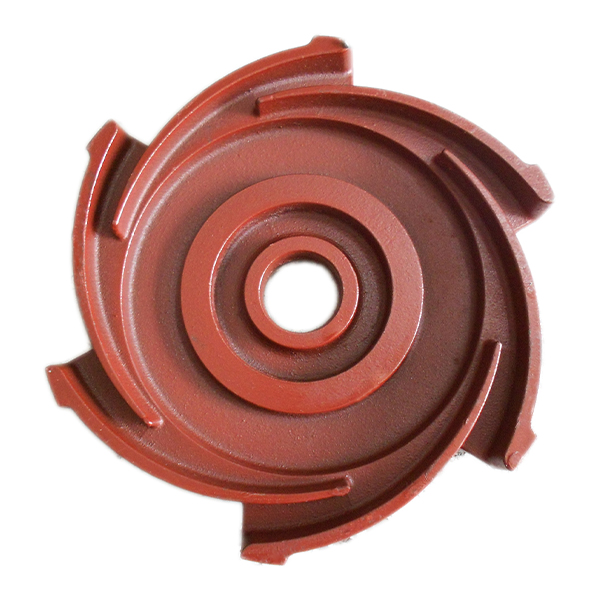
Frequently Asked Questions (FAQ) Regarding Casting Impellers
Q1: What are the primary factors influencing the lifespan of a casting impeller?
A1: The lifespan of a Casting Impeller is significantly influenced by the properties of the fluid being pumped (e.g., abrasiveness, corrosiveness), specific operating conditions (temperature, pressure, occurrence of cavitation), the chosen material, and the effectiveness of maintenance practices. Optimal material selection tailored to the application, precision manufacturing, and consistent monitoring of pump vibrations and fluid quality are crucial for maximizing the service life of this component, which can vary from as little as 1 year in severe slurry applications to over 15 years in clean water systems. The initial quality of the casting and subsequent precision machining are also pivotal determinants.
Q2: How does material selection impact performance and cost?
A2: Material selection represents a critical balance between required performance, durability, and overall cost. For instance, standard cast iron components are highly cost-effective for general water applications but lack the superior corrosion resistance of stainless steel or the abrasion resistance offered by high-chrome white iron. Specialized alloys, such as Duplex Stainless Steel or Nickel-based alloys, deliver outstanding resistance to harsh chemicals and high temperatures, considerably extending the product's life in demanding environments, albeit at a higher initial investment. The long-term savings derived from reduced downtime and fewer replacements often justify the upfront investment in higher-grade materials for critical impeller on pump applications.
Q3: What are common causes of component failure and how can they be prevented?
A3: Common causes of failure for rotating elements include cavitation (the formation and violent collapse of vapor bubbles), erosion (resulting from abrasive solids), corrosion (due to chemical attack), and imbalance leading to excessive vibration. Prevention strategies encompass selecting the correct design and material for the specific fluid and operating conditions, ensuring proper system design to maintain adequate Net Positive Suction Head (NPSH), implementing regular preventative maintenance, and performing dynamic balancing of the component. For example, utilizing a water pump impeller specifically engineered for solids handling in wastewater applications can effectively prevent clogging and subsequent damage.
Q4: What is your typical lead time for custom casting solutions?
A4: Lead times for custom Casting Impellers vary based on design complexity, material availability, and current production schedules. Typically, new custom designs might require 8-12 weeks for tooling development and initial article production, whereas repeat orders or standard components can often be fulfilled within 4-6 weeks. We maintain transparent communication regarding lead times and collaborate closely with our clients to meet their project deadlines, ensuring timely delivery of critical components such as custom pumpe impeller units or specialized cap ends.
Q5: What kind of quality assurance and warranty do you offer on your products?
A5: We adhere to the most stringent quality assurance protocols, including comprehensive ISO 9001 certified processes, exhaustive material testing (encompassing chemical analysis and mechanical properties), meticulous dimensional inspections, and various non-destructive testing (NDT) methods such as ultrasonic and dye penetrant inspection. All our Casting Impellers undergo rigorous final inspection, including precision dynamic balancing. We provide a standard warranty against manufacturing defects, typically ranging from 12-24 months from installation or 18-30 months from shipment, demonstrating our profound confidence in the durability and reliability of our products. Our dedicated customer support team is readily available to assist with any technical inquiries or after-sales service needs, ensuring long-term satisfaction with your critical industrial investment.
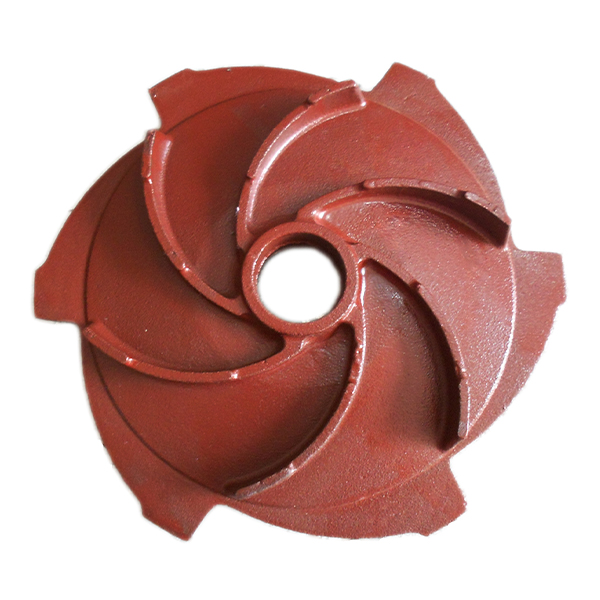
Conclusion: Partnering for Peak Performance with Superior Quality Components
The optimal performance of any industrial pump system is profoundly dependent on the quality, sophisticated design, and intrinsic material integrity of its rotating element. As meticulously explored throughout this article, high-precision Casting Impellers are far more than mere components; they are critical engineering marvels that efficiently convert raw power into fluid motion, delivering substantial operational advantages in terms of enhanced energy efficiency, superior resistance to wear and corrosion, and significantly extended service life. From the rigorous selection of advanced alloys and the application of sophisticated casting techniques to the meticulous post-processing and stringent quality control protocols, every single stage in the manufacturing of a superior unit is precisely designed to meet the exceptionally demanding requirements of critical sectors such as petrochemical, metallurgy, and water treatment. The inherent capability to customize designs, coupled with unwavering adherence to international standards and a steadfast commitment to comprehensive customer support, empowers businesses to optimize their fluid handling systems, effectively reduce maintenance costs, and ensure reliable, long-term operational continuity. Therefore, selecting a trusted manufacturer with deep industry expertise and a demonstrably proven track record represents a strategic investment in the overall efficiency and enduring longevity of your essential industrial infrastructure. Our unwavering dedication to crafting exceptional Casting Impellers positions us as your ideal partner for achieving peak pump performance and operational excellence.
References
- Karassik, I. J., Messina, J. P., Cooper, P., & Heald, C. C. (2008). Pump Handbook. McGraw-Hill Professional.
- American Society of Mechanical Engineers (ASME). (Various). Standards and Codes.
- Hydraulic Institute (HI). (Various). Pump Standards.
- ISO 9001:2015. Quality management systems – Requirements. International Organization for Standardization.
- ASTM International. (Various). Standards for Materials.
- ISO 1940-1:2003. Mechanical vibration – Balance quality requirements for rotors in a constant (rigid) state – Part 1: Specification and verification of balance tolerances. International Organization for Standardization.
-
Materials Used in Manufacturing Cap End Pipe FittingsNewsNov.24,2025
-
Material Properties of CF8M CastingNewsNov.24,2025
-
How to Inspect Pump Cap Ends for DamageNewsNov.21,2025
-
Backward Curved Impeller – Efficient Airflow Solutions for Industry | YD CastingsNewsNov.21,2025
-
Automobile Water Pump - Efficient, Quiet, Durable & ElectricNewsNov.21,2025
-
Impeller for Pumps – High-Efficiency, Durable, OEM-ReadyNewsNov.21,2025











